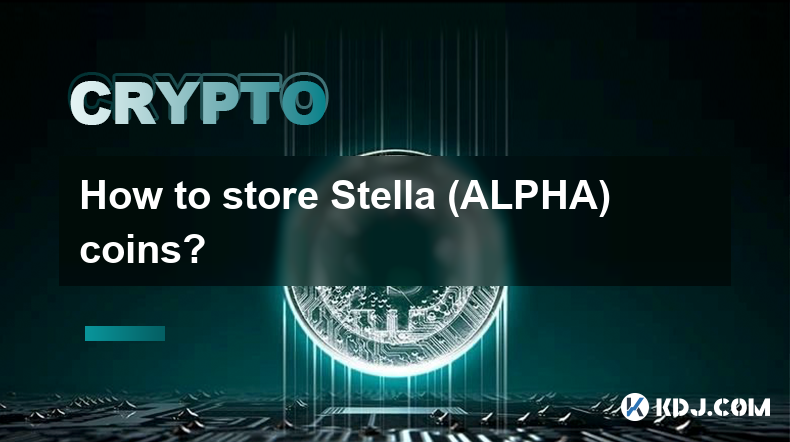-
 Bitcoin
Bitcoin $106,754.6083
1.33% -
 Ethereum
Ethereum $2,625.8249
3.80% -
 Tether USDt
Tether USDt $1.0001
-0.03% -
 XRP
XRP $2.1891
1.67% -
 BNB
BNB $654.5220
0.66% -
 Solana
Solana $156.9428
7.28% -
 USDC
USDC $0.9998
0.00% -
 Dogecoin
Dogecoin $0.1780
1.14% -
 TRON
TRON $0.2706
-0.16% -
 Cardano
Cardano $0.6470
2.77% -
 Hyperliquid
Hyperliquid $44.6467
10.24% -
 Sui
Sui $3.1128
3.86% -
 Bitcoin Cash
Bitcoin Cash $455.7646
3.00% -
 Chainlink
Chainlink $13.6858
4.08% -
 UNUS SED LEO
UNUS SED LEO $9.2682
0.21% -
 Avalanche
Avalanche $19.7433
3.79% -
 Stellar
Stellar $0.2616
1.64% -
 Toncoin
Toncoin $3.0222
2.19% -
 Shiba Inu
Shiba Inu $0.0...01220
1.49% -
 Hedera
Hedera $0.1580
2.75% -
 Litecoin
Litecoin $87.4964
2.29% -
 Polkadot
Polkadot $3.8958
3.05% -
 Ethena USDe
Ethena USDe $1.0000
-0.04% -
 Monero
Monero $317.2263
0.26% -
 Bitget Token
Bitget Token $4.5985
1.68% -
 Dai
Dai $0.9999
0.00% -
 Pepe
Pepe $0.0...01140
2.44% -
 Uniswap
Uniswap $7.6065
5.29% -
 Pi
Pi $0.6042
-2.00% -
 Aave
Aave $289.6343
6.02%
How to store Stella (ALPHA) coins?
For superior security when storing your Stella (ALPHA) coins, consider hardware wallets like Ledger Nano X or Trezor Model T, which keep private keys offline and out of reach of online threats.
Dec 24, 2024 at 05:15 am

Key Points:
- Understanding the Security Aspects of Cryptocurrency Storage
- Exploring Hardware Wallets for Safekeeping
- Utilizing Software Wallets for Convenience
- Navigating Crypto Exchanges for Short-Term Storage
- Considering Cold Storage Options for Enhanced Security
How to Store Stella (ALPHA) Coins
Stella (ALPHA) is a cryptocurrency token based on the Binance Smart Chain (BSC). It empowers users with decentralized financial tools and serves as a vehicle for exploring the expanding world of Web3. To ensure the safety and security of ALPHA tokens, various storage methods are available.
1. Hardware Wallets: Superior Security for Your Cryptocurrency
Hardware wallets are acclaimed as the most secure storage option for cryptocurrencies due to their offline nature. They are dedicated devices that store private keys, eliminating the risk of online vulnerabilities. Popular hardware wallets include:
a. Ledger Nano X: Renowned for its robust security architecture and compatibility with numerous cryptocurrencies, including ALPHA.
b. Trezor Model T: Offers an intuitive interface, exceptional security features, and support for a wide range of coins.
2. Software Wallets: Convenience and Accessibility
Software wallets, also known as "hot wallets," offer convenience in accessing and managing cryptocurrencies through desktop or mobile applications. While less secure than hardware wallets, they provide a practical solution for storing ALPHA tokens. Widely used software wallets include:
a. MetaMask: A versatile and user-friendly software wallet that seamlessly connects with decentralized applications (dApps) and supports ALPHA.
b. Trust Wallet: A mobile-based wallet known for its simplicity, enabling secure storage and efficient transaction management.
3. Crypto Exchanges: Short-Term Storage for Trading and Swapping
Crypto exchanges serve as marketplaces for buying, selling, and swapping cryptocurrencies. They provide built-in storage as well as trading functionalities. ALPHA tokens can be stored on reputable exchanges, such as Binance or Gate.io, for short-term accessibility.
a. Binance: A leading global cryptocurrency exchange offering various trading pairs for ALPHA and high liquidity.
b. Gate.io: A reputable exchange known for its competitive trading fees, diverse cryptocurrency offerings, and custody services for ALPHA.
4. Cold Storage: Enhanced Security for Long-Term Storage
Cold storage involves storing cryptocurrencies in offline mediums, such as paper wallets or hardware wallets that are not connected to the internet. This method minimizes the risk of unauthorized access and is recommended for long-term storage of ALPHA tokens.
a. Paper Wallet: A secure yet basic method that involves generating a physical copy of the public and private keys for ALPHA.
b. Offline Hardware Wallet: Using hardware wallets and storing them offline, disconnected from the internet, enhances the security of ALPHA tokens.
FAQs:
1. What factors should be considered when choosing a storage method for ALPHA tokens?
The preferred storage method depends on the desired level of security, convenience, and usage frequency. Hardware wallets offer top-notch security, while software wallets provide convenience and accessibility. Crypto exchanges are suitable for short-term storage and trading needs, and cold storage is recommended for long-term security.
2. Is it possible to store ALPHA tokens on multiple storage platforms?
Yes, it is possible and recommended to utilize different storage methods for ALPHA tokens, diversifying the security measures. For instance, one can use a hardware wallet for long-term storage, a software wallet for convenience, and an exchange for trading purposes.
3. How often should I move my ALPHA tokens from an exchange to a hardware wallet?
Regular transfer of ALPHA tokens from exchanges to hardware wallets is advisable, especially if the exchange is used for frequent trading. This practice reduces the risk of exchange hacks or vulnerabilities and ensures greater security of the tokens.
Disclaimer:info@kdj.com
The information provided is not trading advice. kdj.com does not assume any responsibility for any investments made based on the information provided in this article. Cryptocurrencies are highly volatile and it is highly recommended that you invest with caution after thorough research!
If you believe that the content used on this website infringes your copyright, please contact us immediately (info@kdj.com) and we will delete it promptly.
- Cryptocurrency Regulation in the Democratic Republic of Congo: A Balancing Act
- 2025-06-19 17:05:12
- Circle, Stablecoin, and Rally: A New York Minute on Crypto's Latest Boom
- 2025-06-19 16:25:13
- Gold Smuggling, Indictment, and Lawyers: A New York Minute
- 2025-06-19 16:25:13
- Neo Pepe Coin: The Next Big Meme Coin Presale?
- 2025-06-19 16:45:12
- Cardano (ADA) Price Drop: Dip or Something More?
- 2025-06-19 17:05:12
- Blocksense: Powering Permissionless and Verifiable Infrastructure
- 2025-06-19 16:45:12
Related knowledge

How to customize USDT TRC20 mining fees? Flexible adjustment tutorial
Jun 13,2025 at 01:42am
Understanding USDT TRC20 Mining FeesMining fees on the TRON (TRC20) network are essential for processing transactions. Unlike Bitcoin or Ethereum, where miners directly validate transactions, TRON uses a delegated proof-of-stake (DPoS) mechanism. However, users still need to pay bandwidth and energy fees, which are collectively referred to as 'mining fe...

USDT TRC20 transaction is stuck? Solution summary
Jun 14,2025 at 11:15pm
Understanding USDT TRC20 TransactionsWhen users mention that a USDT TRC20 transaction is stuck, they typically refer to a situation where the transfer of Tether (USDT) on the TRON blockchain has not been confirmed for an extended period. This issue may arise due to various reasons such as network congestion, insufficient transaction fees, or wallet-rela...

How to cancel USDT TRC20 unconfirmed transactions? Operation guide
Jun 13,2025 at 11:01pm
Understanding USDT TRC20 Unconfirmed TransactionsWhen dealing with USDT TRC20 transactions, it’s crucial to understand what an unconfirmed transaction means. An unconfirmed transaction is one that has been broadcasted to the blockchain network but hasn’t yet been included in a block. This typically occurs due to low transaction fees or network congestio...

What to do if USDT TRC20 transfers are congested? Speed up trading skills
Jun 13,2025 at 09:56am
Understanding USDT TRC20 Transfer CongestionWhen transferring USDT TRC20, users may occasionally experience delays or congestion. This typically occurs due to network overload on the TRON blockchain, which hosts the TRC20 version of Tether. Unlike the ERC20 variant (which runs on Ethereum), TRC20 transactions are generally faster and cheaper, but during...

The relationship between USDT TRC20 and TRON chain: technical background analysis
Jun 12,2025 at 01:28pm
What is USDT TRC20?USDT TRC20 refers to the Tether (USDT) token issued on the TRON blockchain using the TRC-20 standard. Unlike the more commonly known ERC-20 version of USDT (which runs on Ethereum), the TRC-20 variant leverages the TRON network's infrastructure for faster and cheaper transactions. The emergence of this version came as part of Tether’s...

How to monitor large USDT TRC20 transfers? Tracking tool recommendation
Jun 12,2025 at 06:49pm
Understanding USDT TRC20 TransfersTether (USDT) is one of the most widely used stablecoins in the cryptocurrency ecosystem. It exists on multiple blockchains, including TRON (TRC20). The TRC20 version of USDT operates on the TRON network and offers faster transaction speeds and lower fees compared to its ERC-20 counterpart on Ethereum. When discussing l...

How to customize USDT TRC20 mining fees? Flexible adjustment tutorial
Jun 13,2025 at 01:42am
Understanding USDT TRC20 Mining FeesMining fees on the TRON (TRC20) network are essential for processing transactions. Unlike Bitcoin or Ethereum, where miners directly validate transactions, TRON uses a delegated proof-of-stake (DPoS) mechanism. However, users still need to pay bandwidth and energy fees, which are collectively referred to as 'mining fe...

USDT TRC20 transaction is stuck? Solution summary
Jun 14,2025 at 11:15pm
Understanding USDT TRC20 TransactionsWhen users mention that a USDT TRC20 transaction is stuck, they typically refer to a situation where the transfer of Tether (USDT) on the TRON blockchain has not been confirmed for an extended period. This issue may arise due to various reasons such as network congestion, insufficient transaction fees, or wallet-rela...

How to cancel USDT TRC20 unconfirmed transactions? Operation guide
Jun 13,2025 at 11:01pm
Understanding USDT TRC20 Unconfirmed TransactionsWhen dealing with USDT TRC20 transactions, it’s crucial to understand what an unconfirmed transaction means. An unconfirmed transaction is one that has been broadcasted to the blockchain network but hasn’t yet been included in a block. This typically occurs due to low transaction fees or network congestio...

What to do if USDT TRC20 transfers are congested? Speed up trading skills
Jun 13,2025 at 09:56am
Understanding USDT TRC20 Transfer CongestionWhen transferring USDT TRC20, users may occasionally experience delays or congestion. This typically occurs due to network overload on the TRON blockchain, which hosts the TRC20 version of Tether. Unlike the ERC20 variant (which runs on Ethereum), TRC20 transactions are generally faster and cheaper, but during...

The relationship between USDT TRC20 and TRON chain: technical background analysis
Jun 12,2025 at 01:28pm
What is USDT TRC20?USDT TRC20 refers to the Tether (USDT) token issued on the TRON blockchain using the TRC-20 standard. Unlike the more commonly known ERC-20 version of USDT (which runs on Ethereum), the TRC-20 variant leverages the TRON network's infrastructure for faster and cheaper transactions. The emergence of this version came as part of Tether’s...

How to monitor large USDT TRC20 transfers? Tracking tool recommendation
Jun 12,2025 at 06:49pm
Understanding USDT TRC20 TransfersTether (USDT) is one of the most widely used stablecoins in the cryptocurrency ecosystem. It exists on multiple blockchains, including TRON (TRC20). The TRC20 version of USDT operates on the TRON network and offers faster transaction speeds and lower fees compared to its ERC-20 counterpart on Ethereum. When discussing l...
See all articles

























































































